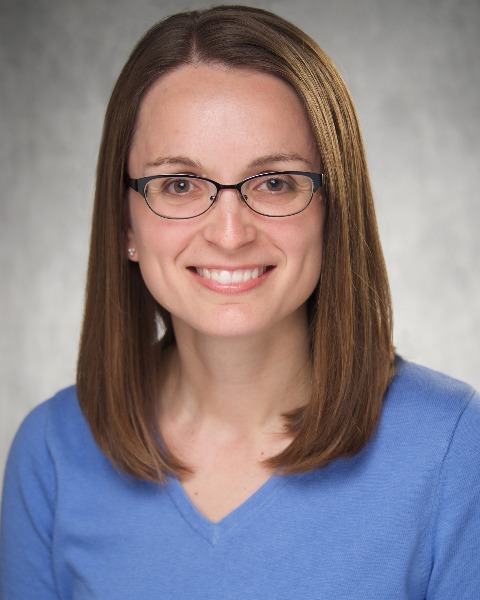Medical Education: Resident
Medical Education 14: Resident 5
495 - Incorporating an Entrustable Professional Activity Supervision Scale Into Direct Observation in Continuity Clinic
Monday, May 1, 2023
9:30 AM - 11:30 AM ET
Poster Number: 495
Publication Number: 495.422
Publication Number: 495.422
Erin R. Howe, University of Iowa, Coralville, IA, United States; Marcy Rosenbaum, University of Iowa Roy J. and Lucille A. Carver College of Medicine, Iowa City, IA, United States; Clarence Kreiter, University of Iowa Stead Family Children's Hospital, Iowa City, IA, United States; Pamela Wood, UT Health San Antonio, San Antonio, TX, United States

Erin R. Howe, MD (she/her/hers)
Clinical Associate Professor of Pediatrics
University of Iowa
Coralville, Iowa, United States
Presenting Author(s)
Background: In residency education, assessing trainee readiness for practice with indirect supervision is challenging. Studies have demonstrated that direct observation using the Structured Clinical Observation (SCO) tool in resident continuity clinics facilitates assessment and feedback. A structured assessment of an intern providing counseling with the addition of the supervision scale for an Entrustable Professional Activity (EPA) that focuses on care of the well child may serve as a unique marker for growth in clinical skills and readiness for increased autonomy in continuity clinic.
Objective: How does incorporating an EPA supervision scale into direct observation of well-child counseling in resident continuity clinic impact faculty assessment of readiness for practice with indirect supervision?
Design/Methods: A previously validated SCO tool was modified to incorporate the EPA 5 (Provide a Medical Home for Well Children of All Ages) supervision scale which includes focus on anticipatory guidance and building therapeutic relationships with patients and families. Following training via a pre-recorded webinar, faculty observed interns delivering well-child counseling in continuity clinic and provided immediate feedback. Faculty evaluated the experience with a post-intervention survey. Data analysis used t-tests and descriptive statistics.
Results: From 12/20-6/21, 7 faculty completed 36 observations of 16 interns providing well-child counseling. Observation time averaged 6 minutes followed by an average of 3.5 minutes for feedback. Faculty evaluation demonstrated statistically significant improvement in an intern’s skill in summarizing their counseling during the well-child visit over time (p=0.006). Ratings of interns on the EPA 5 supervisory scale also improved over time, but not significantly (p=0.06). Post-intervention surveys completed by 4/7 faculty observers demonstrated that most believed that the program allowed them to better assess when an intern is ready to practice with indirect supervision and all stated that adding the EPA rating was helpful in making this assessment. Faculty comments identified strengths of the EPA rating and ideas for improvement.
Conclusion(s): This pilot study combining direct observation of intern well-child counseling using SCO modified with the EPA 5 supervisory scale is a promising and feasible method for more fully informing faculty assessment of intern skill progression and readiness for increased autonomy. Ongoing incorporation of this tool with a larger sample size will provide more data to further evaluate efficacy.
